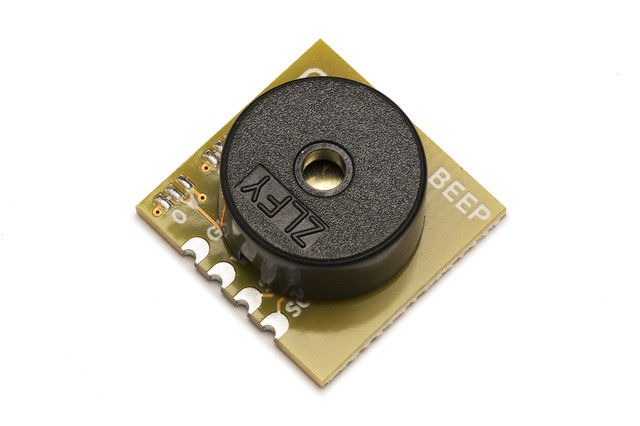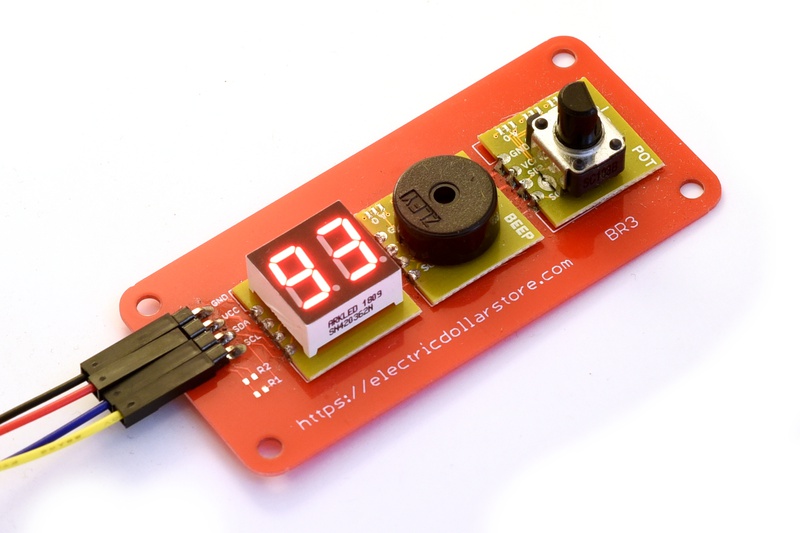Electric Dollar Store
BEEP is a loud piezoelectric buzzer coupled with an I²C controller. By sending a single a single I²C command it generates a note of a given duration. Notes can be interrupted at any time by sendin a new command. BEEP uses a straightforward write-only protocol with one command to trigger audio:
<dur>
<pitch>
Where <dur> is the note duration in milliseconds, and <pitch> is the MIDI note number. By sending a series of notes, the module can generate a variety of tones and alarms. Short notes, under 5 ms, produce loud clicks suitable for keypresses and other interactions.
import sys
import serial
import time
import struct
import random
from i2cdriver import I2CDriver, EDS
if __name__ == '__main__':
i2 = I2CDriver(sys.argv[1], True)
d = EDS.Beep(i2)
for note in range(55, 127):
print("MIDI note %d" % note)
d.beep(100, note)
time.sleep(.100)
#include <Wire.h>
void beep(byte dur, byte note)
{
Wire.beginTransmission(0x30);
Wire.write(dur);
Wire.write(note);
Wire.endTransmission();
}
void setup() {
Wire.begin();
}
void loop() {
for (int note = 55; note < 127; note++) {
beep(100, note);
delay(100);
}
}
from machine import I2C
import time
class Beep:
""" BEEP is a beeper """
def __init__(self, i2, a = 0x30):
self.i2 = i2
self.a = a
def beep(self, dur, note):
"""
Play a note.
dur is the duration in milliseconds, 0-255.
note is a MIDI note in the range 21-127 inclusive.
"""
self.i2.writeto(self.a, bytes((dur, note)))
def main():
i2 = I2C(1, freq = 100000)
d = Beep(i2)
for note in range(55, 127):
print("MIDI note %d" % note)
d.beep(100, note)
time.sleep(.100)
| Default I²C address | 0x30 (0b0110000) |
| Current consumption (typ.) | 5 mA |
| Vcc | 2.2 - 3.6 V |



